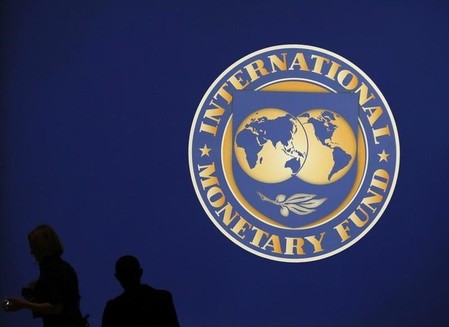By Joe Bavier
ABIDJAN (Reuters) – The International Monetary Fund could lift a suspension on payments aimed at helping Guinea-Bissau emerge from years of political turmoil following an evaluation mission this week, the institution’s country representative said on Monday.
The IMF agreed a programme with Guinea-Bissau last year after 2014 elections drew a line under a coup two years earlier – one of a succession that have spawned chronic instability and helped make the West African country a haven for South American cocaine traffickers.
Disbursements were suspended in June, however, after the government took on 34 billion CFA francs ($58.3 million) in bad loans from two private banks. Donors followed suit and suspended budget support for 2016 equal to around 2.1 percent of GDP.
IMF representative Oscar Melhado told Reuters by email that the Fund welcomed a government decision to cancel the bailouts, whose value amounted to around 5.5 percent of GDP.
“The only remaining obstacle is the refusal of the banks to accept the bad portfolio back into their books,” he said.
The IMF had argued the bailouts benefited the wealthiest citizens and foreign investors. Authorities had said they were needed to shield the private sector from bankruptcy.
Monday was a public holiday and the banks, Banco da Africa Ocidental and Banco da União, were not available for comment.
Melhado said the government should also commit to implementing prudent macroeconomic policies and key structural reforms during the visit due to begin on Tuesday, which constitutes the first and second reviews of the IMF programme.
Disbursements worth 4.1 billion CFA could still be made this year if the reviews are approved by the IMF’s board in December.
Total donor contributions, including direct budget support and financing for targeted sectors and projects, typically make up around 80 percent of Guinea-Bissau’s budget. After the IMF freeze, Finance Minister Henrique Horta described the economic situation, including a budget deficit amounting to about 3.5 percent of GDP, as “catastrophic”.
The government of Guinea, which is helping to mediate in its smaller Portuguese-speaking neighbour, said earlier this month that Guinea-Bissau would not be able to pay the salaries of civil servants and the security forces from October.
“We hope that donors will resume support following the IMF. It would depend on each donor’s policy,” Melhado said.
The IMF visit comes days after an agreement to form a new government, ending a year-long political crisis that has paralysed state institutions.
($1 = 582.9600 CFA francs)
(Reporting by Joe Bavier; Editing by Mark Trevelyan)


